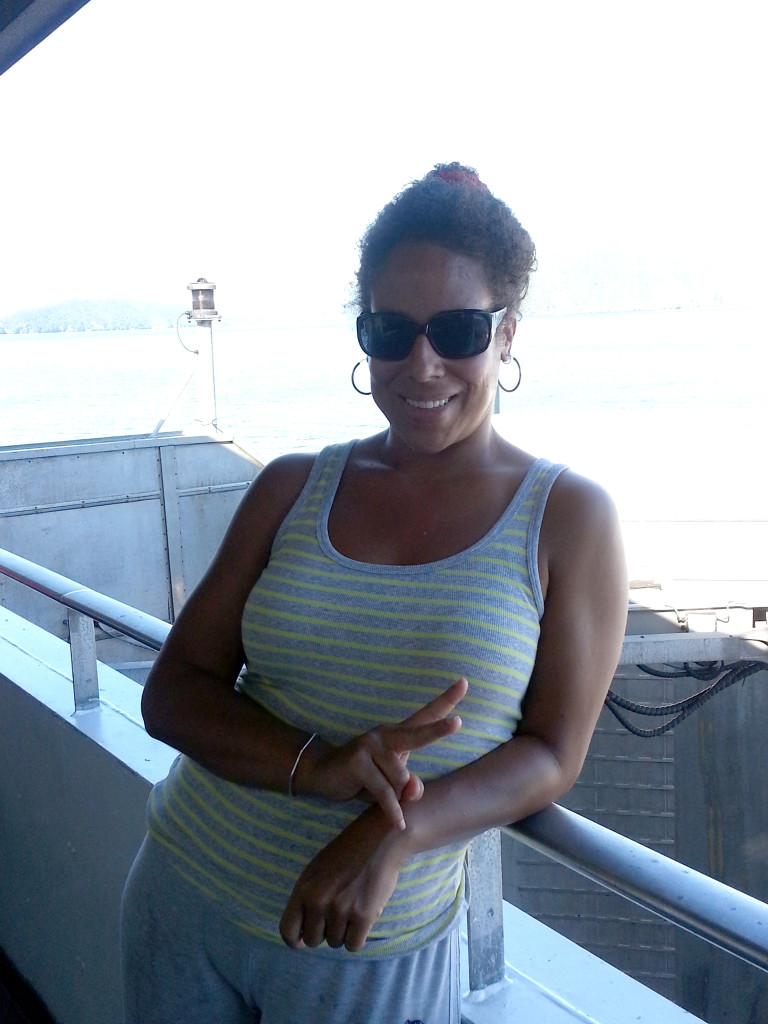Podcast: Play in new window | Download
Subscribe: Apple Podcasts | RSS
Dr. Cassandra Extavour is a Professor of Organismic and Evolutionary Biology and Professor of Molecular and Cellular Biology at Harvard University. She received her PhD from the Severo Ochoa Center for Molecular Biology at the Autonomous University of Madrid. Cassandra then conducted postdoctoral research at the Institute for Molecular Biology and Biotechnology in Crete, Greece as well as at the University of Cambridge. Afterward, she worked as a Research Associate in the Department of Zoology at Cambridge before joining the faculty at Harvard. In this interview, Cassandra shares more about her journey through life and science.
People Behind the Science Podcast Show Notes
Life Outside of Science
In addition to her passion for science, Cassandra is also passionate about music. She enjoys listening to music and is a professional singer as well. Other activities that occupy her free time are dancing, hosting parties, and cooking for her friends.
The Scientific Side
Scientifically, Cassandra spends her time examining the evolution of embryonic development. Her lab seeks to understand how genes direct cells during development to become different kinds of cells. They are also interested in the evolutionary origin of these genes.
A Dose of Motivation
“We refuse to be what you wanted us to be. We are what we are. That’s the way it’s going to be.” by Bob Marley in Babylon System
What Got You Hooked on Science?
Cassandra came to science relatively late. As a child she loved music and was planning on pursuing a career as a musician. Science was not really on her radar until her best friend in high school expressed an interest in psychology. This got Cassandra thinking about the brain and behavior, and she decided to pursue a career in neurosurgery. This meant working really hard over the summer to learn science so she could take the advanced courses in her final year of high school to get into a college biology program.
The Low Points: Failures and Challenges
As a PhD student, Cassandra moved to Madrid and selected a project that both she and her advisor thought was really interesting. Unfortunately, 2.5 years into graduate school, nothing was working. She struggled with the technical challenge of creating flies with reproductive cells (germ cells) that were not genetically identical. Cassandra tried a myriad of different methods to address the issue, but time was running short and her advisor was not thrilled about the possibility of her switching projects.
A Shining Success!
Cassandra and a collaborator established a workshop for the North American evolutionary developmental biology community to discuss the state of the field, major achievements, future directions, and barriers to success. This was a productive workshop that lead to the writing of a paper as well as the creation of a new professional society, called the Pan American Society for Evolutionary Developmental Biology, that will help propel the field forward.
Book Recommendations
Faces at the Bottom of the Well: The Permanence of Racism by Derrick Bell
Most Treasured Travel
Her favorite place where she has lived and conducted science was Crete, Greece. Cassandra went there for a posdoctoral fellowship, and the island and the landscape was absolutely beautiful. She also really enjoyed talking to people and learning about the history and culture there. Scientifically, the institute where she worked was doing excellent research, and made very good use of the resources they had.
Quirky Traditions and Funny Memories
During a postdoc at the University of Cambridge, Cassandra’s lab group heard that another research group went on a lab retreat to Sicily, so they decided it would be awesome to do a lab retreat somewhere nice and warm. They proposed the idea of a lab retreat to their boss, and he agreed. He chose the location in Wales, and the group was really disappointed by the thought of spending their retreat surrounded by sheep, farms, and lots of damp fog. It turned out they all had a great time and they still laugh about these memories.
Advice For Us All
Don’t let anybody push you around.
Guest Bio
Cassandra Extavour is a native of Toronto, where she attended the University of Toronto Schools and went on to obtain an Honors BSc at the University of Toronto with a specialist in Molecular Genetics and Molecular Biology, a Major in Mathematics and a Minor in Spanish. She obtained her PhD with Antonio Garcia Bellido at the Severo Ochoa Center for Molecular Biology at the Autonomous University of Madrid. She performed postdoctoral work first with Michalis Averof at theInstitute for Molecular Biology and Biotechnology in Crete, Greece, and subsequently with Michael Akam at the University of Cambridge. At Cambridge she received a BBSRC Research Grant and became a Research Associate in the Department of Zoology. In 2007 she established her independent laboratory as an Assistant Professor in the Department of Organismic and Evolutionary Biology at Harvard University, where she was promoted to Associate Professor in 2011 and to Full Professor of both Organismic and Evolutionary Biology, and Molecular and Cellular Biology, in 2014.
Dr. Extavour has received numerous honors and awards, including a graduate training fellowship of the Spanish Ministry of Science and Research as a graduate student; the EMBO Short Term Fellowship as a postdoctoral researcher, and the Ellison Medical Foundation New Scholar in Aging Award as an Assistant Professor. For her teaching and mentoring activities, she has been nominated for the Joseph R. Levenson Memorial Teaching Prize and the Harvard Graduate Women in Science and Engineering Mentoring Award.
Outside the lab, Dr. Extavour has been a musician and performer since the age of five, and a professional classical singer since her undergraduate days in Toronto, when she was a member of the Tafelmusik Chorus. She currently performs with the Handel and Haydn Society and Emmanuel Music in Boston.
This episode was originally published on April 13, 2015.

Leave a Reply